Master Your Data: Top 15 Data Management Software Options for Streamlined Efficiency
- Jessica R.
- July 12, 2024
- Edited July 12, 2024
Table of Contents
In today’s digital environment, efficiently managing data is essential for businesses of all sizes. From small startups to large corporations, the ability to organize, store, and analyze data can define the success of an organization. Fortunately, numerous data management software options can help businesses streamline their data handling processes, enhance productivity, and make better-informed decisions.
This blog post explores 15 leading data management software solutions, each designed to help you effectively take control of your data needs. Whether you’re looking to improve data quality, boost your analytics capabilities, or secure your information more robustly, there’s a tool tailored to your requirements.
1. Microsoft SQL Server
Microsoft SQL Server is a robust platform offering scalability and security. It is ideal for businesses that require complex data processing and in-depth analytics. With its user-friendly interface and powerful tools, this software ensures your data management solutions are both accessible and efficient. It supports various programming languages, making it a versatile choice for developers.
2. Oracle Database
Known for its reliability and comprehensive features, Oracle Database is a top pick for enterprises with vast amounts of data and high transaction volumes. It supports large-scale operations and mixed workloads without compromising on performance. Oracle’s strong security features ensure that your data management solutions are safe from unauthorized access.
3. MySQL
MySQL is a popular open-source database known for its ease of use and effectiveness in managing smaller databases. It’s particularly well-suited for web-based applications. MySQL offers flexibility and simplicity, making it a preferred choice for new businesses and those with limited IT resources. It integrates seamlessly with various web technologies, enhancing your data management solutions.
4. IBM Db2
IBM Db2 offers high-performance data handling capabilities suitable for business-critical operations. It provides advanced data analytics features, enabling businesses to extract valuable insights from their data. Db2 is known for its robustness and is often used in finance and banking for its reliable data management solutions.
5. PostgreSQL
As an advanced open-source database, PostgreSQL is renowned for its standards compliance and extensibility. It supports both SQL for relational and JSON for non-relational queries, making it highly flexible for developing modern applications. PostgreSQL is particularly powerful for handling complex data types and large volumes of data, streamlining your data management solutions.
6. SAP HANA
SAP HANA is a memory-centric data management platform that enables real-time processing of massive amounts of data. It integrates database, data processing, and application platform capabilities in a single solution. SAP HANA is a great choice for businesses needing fast data processing and real-time analytics as part of their data management solutions.
7. MongoDB
For those dealing with large volumes of unstructured data, MongoDB is an excellent option. It’s a NoSQL database that offers high scalability and flexibility with its document-oriented storage approach. MongoDB is particularly effective for managing data that frequently changes, enhancing the agility of your data management solutions.
8. Cassandra
Cassandra is designed to handle large amounts of data across many commodity servers. It provides robust fault tolerance, no single point of failure, and is highly scalable. Cassandra is ideal for businesses that must manage large volumes of data without downtime, ensuring continuous availability of data management solutions.
9. Redis
Redis is an open-source in-memory data structure store, used as a database, cache, and message broker. It supports various data structures such as strings, hashes, lists, and sets. Redis is renowned for its speed and is often used for session caching, making it a critical component of data management solutions that require quick data retrieval.
10. Neo4j
Neo4j is a graph database management system described as ACID-compliant and transactional. It is designed for managing and querying highly connected data, making it ideal for social networking databases, recommendation engines, and fraud detection systems. Neo4j enhances the way relationships between data points are managed within your data management solutions.
11. Amazon RDS
Amazon RDS simplifies the setup, operation, and scaling of a relational database in the cloud. It provides cost-efficient and resizable capacity while automating time-consuming administration tasks such as hardware provisioning, database setup, patching, and backups. Amazon RDS is an excellent choice for managing databases in the cloud as part of your data management solutions.
12. Google BigQuery
Google BigQuery is a fully managed enterprise data warehouse that enables super-fast SQL queries using the processing power of Google’s infrastructure. It is highly scalable and requires no setup or management, which is ideal for businesses that need to analyze big datasets with simplicity as part of their data management solutions.
13. Microsoft Azure SQL Database
Microsoft Azure SQL Database is a relational database as a service (DBaaS) in the Azure Cloud. Azure SQL Database is highly accessible and scalable, providing dynamic scalability with no downtime, automatic performance tuning, and high availability. It’s a robust solution for businesses looking to enhance their data management solutions in the cloud.
14. Informix
Informix can be a superior option for firms that require an OLTP (Online Transaction Processing) database with excellent performance and online configuration changes. Its ability to handle large volumes of data alongside its time series data management makes Informix a unique choice for data management solutions.
15. Zoho Creator
Zoho Creator is a low-code platform that allows you to build online databases from scratch. It offers a drag-and-drop interface to create custom apps that can manage your data effectively. Ideal for small to medium-sized businesses, Zoho Creator makes it easy to tailor data management solutions to specific needs.
Conclusion
Choosing the right data management software can transform the way your business operates, enabling more effective decision-making, better customer relations, and improved operational efficiency. The 15 data management software options outlined above offer a variety of features that cater to different business needs, from handling vast amounts of unstructured data to performing real-time analytics.
By selecting a tool that aligns with your business goals and data requirements, you can ensure that your organization remains agile and informed in the ever-evolving digital age. Ensure you thoroughly evaluate each option to find the solution that best fits your data management needs, ensuring your data works for you and not vice versa.

Jessica R.
Jessica is a seasoned GMP compliance consultant and technical writer specializing in pharmaceutical manufacturing, data integrity, and quality assurance. With over 12 years of experience working with global pharmaceutical firms, Jessica brings deep industry insights into FDA, EMA, and MHRA regulations.


